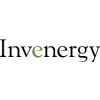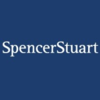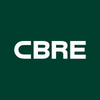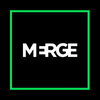- Determine the job or types of jobs you want to do and research their responsibilities and qualifications.
- Think about why you can do the job and make a list of your skills that are relative to the job.
- Identify experiences or accomplishments that show your proficiency in the skills required for the job.
- Summarize your abilities, accomplishments and skills into a brief, concise document.
- Do be brief. Resumes should be 1-2 pages in length.
- Do be upbeat and active in your wording.
- Do emphasize what you have done clearly and concretely.
- Do be neat and well organized.
- Do have others proofread and critique your resume. Spell check. Make it error free.
- Do use high quality, white or light colored 81⁄2 x 11 paper. Use a laser printer if possible.
- Don't be dishonest, always tell the truth about yourself in the most flattering light.
- Don't include salary history or requirements.
- Don't include references.
- Don't include accomplishments that do not support your professional goals.
- Anticipate –Put yourself in the interviewer's position. What do you believe the interviewer is most interested in? Why do you think you have been invited to interview?
- Research –What are the primary functions of the line of business? What are the success factors for the job? Is there a job description available?
- Assess –Think about your skills, abilities, knowledge, interests, traits, values and accomplishments. Match them to what you know about the job. Consider which ones you should highlight.
- Prepare Answers –Think about what the interviewer may ask, determine what the best answer is and write it down.
- Prepare Questions – Interviewing is a two-way street. By asking thoughtful questions, you communicate your interest and learn a lot about the job. Choose two or three questions to ask your interviewer. Avoid asking a lot of questions about vacation time or breaks.
- Practice – It may seem awkward, but it is the best way to come across well in an interview. Practice your own "great responses" with others or in front of a mirror until you appear relaxed and at ease.
- Follow-up – Send a brief follow-up letter to the interviewer. Keep in mind that the many job searchers will not send a follow-up letter. Sending one can become a competitive advantage.
-
Analyst, Finance
3 weeks ago
PMX Chicago, United States Full timeJob Description · This position is suitable for a, service-focused individual who will monitor, maintain, and complete client billing and reconciliations, as well as participate in reporting and account maintenance processes. The Financial Analyst position supports our Client Fi ...
-

Finance Analyst
2 weeks ago
Bank of Montreal Chicago, United States InternshipSHIPApplication Deadline:06/27/2024 Address:320 S Canal Street. Job Family Group:Finance & Accounting. As a co-op/intern student at BMO, you will have the opportunity to be heard, keep growing and make a difference. You will be part of our campus program Finance Analyst, Fall, Financ ...
-
Analyst, Finance
2 weeks ago
Invenergy Chicago, United StatesAnalyst, Finance & Capital Markets page is loaded · Analyst, Finance & Capital Markets · Apply · locations · Chicago, IL · time type · Full time · posted on · Posted 3 Days Ago · job requisition id · R07815 · Invenergy drives innovation in energy. Powered by decades of ...
-
Analyst - Finance
1 week ago
Spencer Stuart Chicago, United StatesFinancial Analyst · The Financial Analyst position is a role in the Regional Controllership group representing a key resource for the team. The Financial Analyst will work very closely with the Regional Controllers (RCs) on a wide variety of responsibilities from general technic ...
-
Analyst, Finance
1 week ago
Invenergy Chicago, United StatesInvenergy drives innovation in energy. Powered by decades of entrepreneurial experience and unparalleled execution, we solve the energy challenges facing our customers and communities. We provide power generation and storage solutions at scale around the world to create a cleaner ...
-
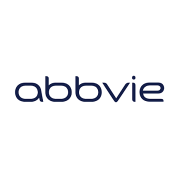
Analyst, Finance
3 weeks ago
Abbvie North Chicago, United StatesCompany Description · AbbVie's mission is to discover and deliver innovative medicines and solutions that solve serious health issues today and address the medical challenges of tomorrow. We strive to have a remarkable impact on people's lives across several key therapeutic areas ...
-
Finance Analyst
2 weeks ago
CBRE Chicago, United StatesFinance Analyst · Job ID · 162186 · Posted · 25-Apr-2024 · Service line · Advisory Segment · Role type · Full-time · Areas of Interest · Sales & Leasing, Sales Support, Sales/Brokerage · Location(s) · Chicago - Illinois - United States of America · Are you ready to s ...
-
Analyst, Finance
2 weeks ago
PMX Chicago, United StatesJob Description · Job DescriptionCompany Description · Publicis Media Exchange (PMX) is the global media platform for Publicis Groupe [Euronext Paris FR , CAC 40]. PMX is an omnichannel activation powerhouse that drives smart application of investment through leveraging scale, ma ...
-
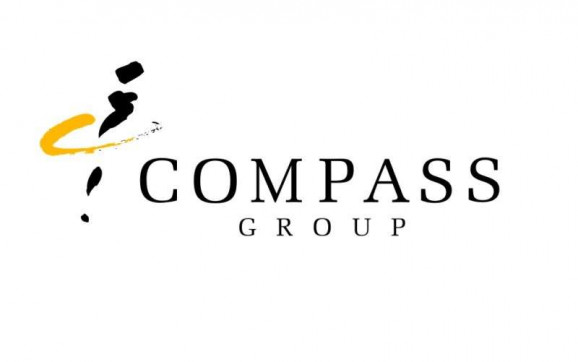
Finance Analyst
2 weeks ago
Compass Group USA Chicago, United StatesFinance Analyst - Wrigley FieldClick Here to Apply OnlineJob Description Levy Sector Different perspectives make us better. We're committed to creating an equal opportunity and fair treatment environment, where learning and growing together is just part of our every day. An envir ...
-

Analyst, Finance
6 days ago
veranohold Chicago, United StatesJob Description · Job DescriptionJob Summary: · The Analyst, Finance Tax is responsible for all corporate tax tasksincluding state and federal tax filings, sales tax, use tax, tax research, and compliance. This role will also support additional filings to ensure our financial rep ...
-
Analyst, Corporate Finance
5 days ago
Fetch Rewards Chicago, United StatesWhat we're building and why we're building it. · There's a reason Fetch is ranked top 10 in Shopping in the App Store. Every day, millions of people earn Fetch Points buying brands they love. From the grocery aisle to the drive-through, Fetch makes saving money fun. We're more ...
-
Finance Analyst
2 weeks ago
BMO Financial Group Chicago, United States InternshipSHIPAs a co-op/intern student at BMO, you will have the opportunity to be heard, keep growing and make a difference. · You will be part of our campus program to gain the skills and knowledge needed to take on roles similar to the description listed below. · Our student experience i ...
-
Client Finance Analyst
2 weeks ago
Merge Chicago, United StatesMerge Storytelling and Technology · MERGE promotes health, wealth and happiness in the world by merging storytelling with technology and offers marketing and technology clients full-service capabilities including strategy, creative communications, experience engineering, performa ...
-
Analyst- Public Finance
4 weeks ago
Huntington Bancshares, Inc. Chicago, United StatesThe Public Finance Analyst performs debt profile analysis and modeling related to clients and prospects of the Public Finance group. Analysis is often performed using DBC software or Excel, although other analytics such as Bloomberg, TM 3 or propriet Finance, Finance Analyst, Ana ...
-

Commercial Finance Analyst
2 weeks ago
GE HealthCare Technologies, Inc. Chicago, United StatesOwnership of the monthly variable compensation paid to indirect sales channel partners across all 3 equipment business segments (Imaging, PCS, Ultrasound) and disputes management in partnership with cross-functional stakeholders. Support P&L estimate Finance Analyst, Sales, Comme ...
-
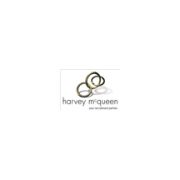
Commercial Finance Analyst
1 week ago
General Electric Company Chicago, United StatesJob Description Summary · The United States and Canada (USCAN) National Accounts & Indirect Sales Channels Commercial Finance Analyst will support the analysis, reporting, and planning of total National Accounts and Indirect Sales Channels financials focusing on external commiss ...
-
Hotel Finance Analyst
3 weeks ago
CBRE Chicago, United StatesHotel Finance Analyst · Job ID · 136132 · Posted · 30-Apr-2024 · Service line · Advisory Segment · Role type · Full-time · Areas of Interest · Sales Support, Sales/Brokerage · Location(s) · Chicago - Illinois - United States of America · Are you ready to start an exc ...
-
Sr. Analyst, Finance
2 weeks ago
Ferrara Candy Company Chicago, United StatesFerrara, a company related to The Ferrero Group, is an emerging powerhouse in the North American confections and sweet snacking categories. A passionate team of more than 6,000 employees works together to share delight in every bite through leading brands that have shaped the ind ...
-

Finance Business Analyst
3 weeks ago
Apex Fintech Solutions Chicago, United States Full timeWHO WE ARE · Apex Fintech Solutions (AFS) powers innovation and the future of digital wealth management by processing millions of transactions daily, to simplify, automate, and facilitate access to financial markets for all. Our robust suite of fintech solutions enables us to sup ...
-

Senior Finance Analyst
2 weeks ago
Health Intelligence company LLC Chicago, United StatesJob Description · Job DescriptionAbout BHI: · BHI is a data analytics and software-as-a-service company helping health plans, researchers, healthcare providers, employers, and government agencies use data to improve the health of populations and increase the value of care provid ...
Quantitative Finance Analyst - Chicago, United States - Bank of America

Description
Quantitative Finance Analyst page is loadedQuantitative Finance Analyst
Apply
locations
Chicago
time type
Full time
posted on
Posted 4 Days Ago
job requisition id
Job Description:
At Bank of America, we are guided by a common purpose to help make financial lives better through the power of every connection.
Responsible Growth is how we run our company and how we deliver for our clients, teammates, communities and shareholders every day.
One of the keys to driving Responsible Growth is being a great place to work for our teammates around the world.
We're devoted to being a diverse and inclusive workplace for everyone.We hire individuals with a broad range of backgrounds and experiences and invest heavily in our teammates and their families by offering competitive benefits to support their physical, emotional, and financial well-being.
Bank of America believes both in the importance of working together and offering flexibility to our employees. We use a multi-faceted approach for flexibility, depending on the various roles in our organization.Working at Bank of America will give you a great career with opportunities to learn, grow and make an impact, along with the power to make a difference.
Join usJob Description
Overview of Global Risk Analytics - Bank of America Merrill Lynch has an opportunity for a Quantitative Finance Analyst within our Global Risk Analytics (GRA) function.
GRA is a sub-line of business within Global Risk Management (GRM).GRA is responsible for developing a consistent and coherent set of models and analytical tools for effective risk and capital measurement, management and reporting across Bank of America.
GRA partners with the Lines of Business and Enterprise functions to ensure that its models and analytics address both internal and regulatory requirements, such as quarterly Enterprise Stress Testing (EST), the annual Comprehensive Capital Analysis and Review (CCAR), and the Current Expected Credit Losses (CECL) accounting standard.
GRA models follow an iterative and ongoing development life cycle, as the bank responds to the changing nature of portfolios, economic conditions and emerging risks.
In addition to model development, GRA conducts model implementation, data management, model execution and analysis, forecast administration, and model performance monitoring.
GRA drives innovation, process improvement and automation across all of these activities.
The Market Risk Quants (MRQ) team within Global Risk Analytics (GRA) organization is responsible for the development and enhancement of market risk models and analytical tools.
The team's remit spans market risk models for internal risk management, market risk capital requirements for Internal Model Approach (IMA) approved Legal Entities within Basel 2.5 regulatory framework, and IMA and Standardized Approach (SA) for upcoming FRTB regulatory framework, stress testing such as CCAR, EST, ICAAP, Recovery and Resolution Planning, and Climate Risk.
As a quantitative model developer in MRQ team, you will be responsible for:Develop and enhance quantitative risk models, analytics and applications in support of market risk assessment and regulatory capital calculation in current Basel 2.5 (e.g. VaR, Stressed VaR, Risks Not in VaR) and/or upcoming FRTB (e.g. Standard Approach, Expected Shortfall, Non-modellable risk factor, Risks Not in Model) regulatory framework
Develop and enhance quantitative risk models, analytics and applications for the firm's Stress Testing including CCAR
Develop model performance monitoring metrics such as benchmarking, backtesting as part of continuous efforts to identify and remediate potential model weakness.
Closely work with Global Markets Risk (GMR) and Front-Line Units (FLU) trading desks for internal risk management, Enterprise Capital Management (ECM) for market risk capital requirements, technology partners for model implementation, front-office pricing model quant developers, and Model Risk Management (MRM) for model risk oversight.
Required Qualifications:
Advanced degree in quantitative fields such as Mathematics, Financial
Mathematics/Engineering,
Quantitative Finance, Statistics, Econometrics, Physics, computer science, or equivalent and 2+ years of industry experience.
Programming skills, preferably in Python, or equivalent object-oriented programming
Experience in or willingness to learn derivatives pricing and/or statistical analysis of financial data, time series information.
Desired Qualifications:
Experience in market risk models such as FRTB Standard Approach (SA), FRTB Internal Model Approach (IMA), Value at Risk (VaR), Risks Not in VaR (RNiV), and Stress Testing.
Strong written and verbal communications.
Ability to deliver quality outcomes in a timely manner in a fast-paced environment.
Skills:
Critical Thinking
Quantitative Development
Risk Analytics
Risk Modeling
Technical Documentation
Adaptability
Collaboration
Problem Solving
Risk Management
Test Engineering
Data Modeling
Data and Trend Analysis
Process Performance Measurement
Research
Written Communications
Shift:
1st shift (United States of America)
Hours Per Week:
40
Similar Jobs (7)
Quantitative Finance Analyst, Model Developer - Global Financial Crimes
locations
4 Locations
time type
Full time
posted on
Posted 30+ Days Ago
Quantitative Finance Analyst, Model Developer - Global Financial Crimes
locations
4 Locations
time type
Full time
posted on
Posted 30+ Days Ago
Quantitative Finance Analyst -Financial Crimes Data Analyst
locations
4 Locations
time type
Full time
posted on
Posted 30+ Days Ago
Bank of America is committed to help employees through the transition period when they're displaced as a result of a workforce reduction, realignment or similar measure.
Please review the resume writing and interviewing tips provided below to help prepare you for your next career opportunity.Regardless of the position you are interested in, the starting points to building your resume are the same:
Seven steps to a successful interview

